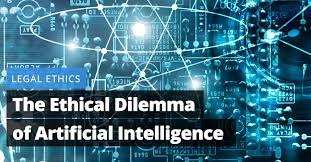The Ethical Dilemmas in AI Development: What You Need to Know
This article explores the ethical dilemmas in AI development, including bias, privacy concerns, job displacement, accountability, and the weaponization of AI. It highlights the challenges and emphasizes the importance of collaboration in creating responsible, transparent, and fair AI systems.
BLOG


Artificial Intelligence (AI) is transforming industries, from healthcare to finance, with unprecedented speed. While its potential is enormous, the rapid development of AI also raises critical ethical questions. Understanding these dilemmas is essential for developers, businesses, and end-users alike. This blog dives into the key ethical challenges in AI development and explores why they matter to everyone.
1. Bias and Fairness in AI Systems
AI systems learn from data, and if that data contains biases, the AI will reflect them. For instance, a hiring algorithm trained on historically biased data might unfairly disadvantage certain groups. The dilemma? Eliminating bias is not just a technical challenge but also an ethical one. Developers must ask:
What biases might exist in our data?
How can we audit and mitigate them effectively?
To address this, many organizations are implementing fairness audits and diversifying their training datasets. However, creating truly bias-free AI remains a significant hurdle.
2. Privacy Concerns
AI relies on massive amounts of data, much of it personal. Facial recognition, recommendation systems, and voice assistants all gather sensitive information. The question arises:
How much data is too much?
Are users aware of how their data is being used?
Striking a balance between innovation and privacy protection is critical. Ethical AI development demands transparency in data usage and robust safeguards against misuse or unauthorized access.
3. Job Displacement and Economic Impact
AI automation is making many processes more efficient, but at the cost of human jobs. This creates a moral dilemma:
How can we harness AI’s efficiency without causing widespread unemployment?
Should developers be responsible for considering the societal impact of their creations?
Some solutions include upskilling programs and policies that promote human-AI collaboration rather than replacement. However, these initiatives require global cooperation and foresight.
4. Autonomous Decision-Making and Accountability
AI systems are increasingly tasked with making decisions in critical areas like healthcare, finance, and law enforcement. These decisions can have life-altering consequences. The dilemma?
Who is accountable when AI makes a mistake?
How can we ensure AI decisions are transparent and explainable?
Developers are exploring explainable AI (XAI) technologies to make AI decisions more understandable. Additionally, governments and organizations are crafting regulations to assign accountability.
5. Weaponization of AI
The use of AI in military applications poses severe ethical risks. Autonomous weapons and AI-driven surveillance could lead to violations of human rights. This raises the urgent question:
Should there be limits to AI’s application in warfare?
How can global agreements prevent misuse?
Ethical frameworks and international treaties, such as those proposed by the United Nations, are essential to mitigate these risks.
Conclusion
The ethical dilemmas in AI development are not hypothetical—they are urgent challenges that affect us all. Addressing them requires collaboration among developers, policymakers, businesses, and consumers. By prioritizing fairness, transparency, and accountability, we can steer AI development toward a future that benefits everyone.
Actionable Tip: Whether you’re an AI developer, business leader, or an informed citizen, stay updated on ethical AI practices and advocate for responsible innovation.
Do you have thoughts on AI ethics? Share your perspective with us.
Concerning ethics and security overlap, read: "AI Arms Race and Security: UK Launches the Laboratory for AI Security Research (LASR)"